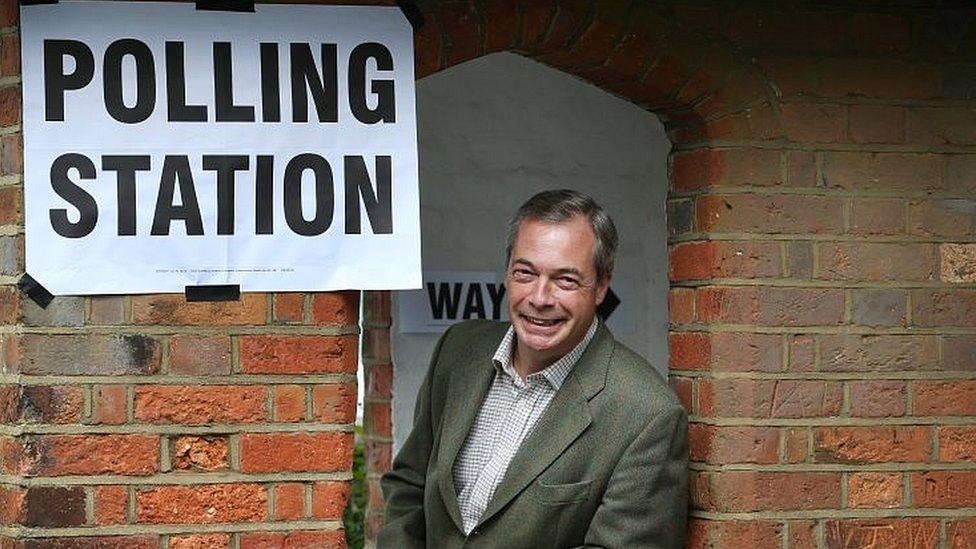UKIP 'gets radical' with return to right-wing policies
- Published

What do you do when the central policy on which your party was formed and has long campaigned becomes the domain of a political rival? If you're UKIP, get radical.
Theresa May has framed this election in terms of Brexit. The Conservatives are the party which will deliver on the referendum result, she has said, while other parties - namely Labour and the Lib Dems - want to frustrate the process.
In doing so she's stolen a march on UKIP; the party which for so long was the sole advocate of leaving the EU.
It hasn't abandoned Brexit. It has said it will continue to "hold the government's feet to the fire" and push for the kind of EU exit it wants, adamant there's still a role to play.
But UKIP needs a new unique selling point.
Cue a plethora of policies designed to appeal to the party's core voters; a moratorium on new Islamic schools in the state system, Sharia courts outlawed and a ban on face coverings in public places.

Former UKIP leader Nigel Farage is not standing this time
This is a return to right-wing territory in which UKIP has dabbled before. A step away from the libertarian values the party has said in the past that it stands for.
It's an extension of the party's popular stance on controlled immigration; limit the number of people who come to the UK and ensure those who do fully integrate into society.
But it's more than that.
UKIP has long appealed to a certain emotion among parts of the electorate, portraying itself as the true protector of British values, proud to stand up for a way of life it claims is at risk of erosion from political correctness.
Its integration agenda was quickly labelled by some as offensive, even Islamophobic, but for UKIP these policies are true patriotism, a defence of the realm and its values from what it calls "crude multiculturalism".
UKIP still sees itself as the party prepared to say things other politicians won't, unafraid to risk offence to create debate. It takes credit for forcing other parties to talk frankly about immigration; now they hope to do the same with integration and in doing so ensure their relevance beyond Brexit and appeal to their traditional supporters.
The Tories have stomped on UKIP turf, so the party's trying to break new ground.
If it's more radical as a consequence? So be it. The question is whether it will be enough.